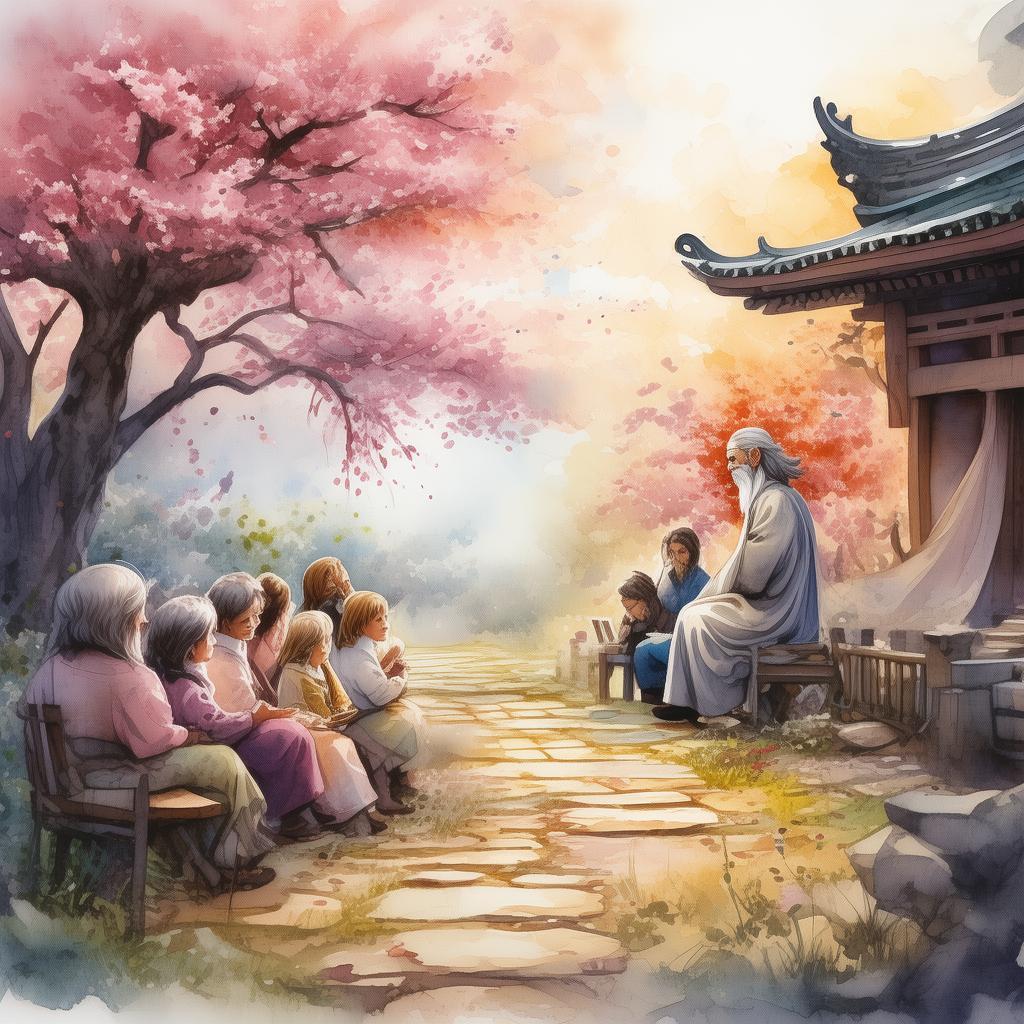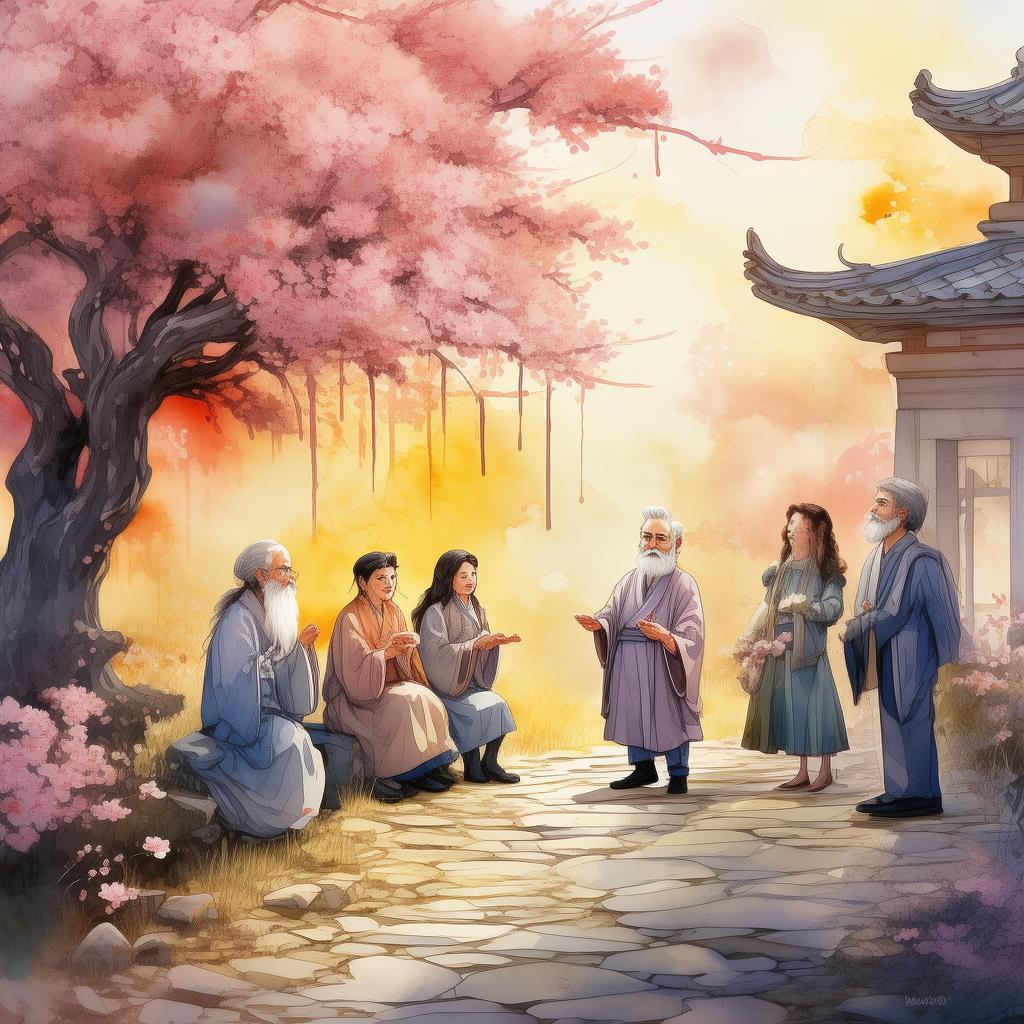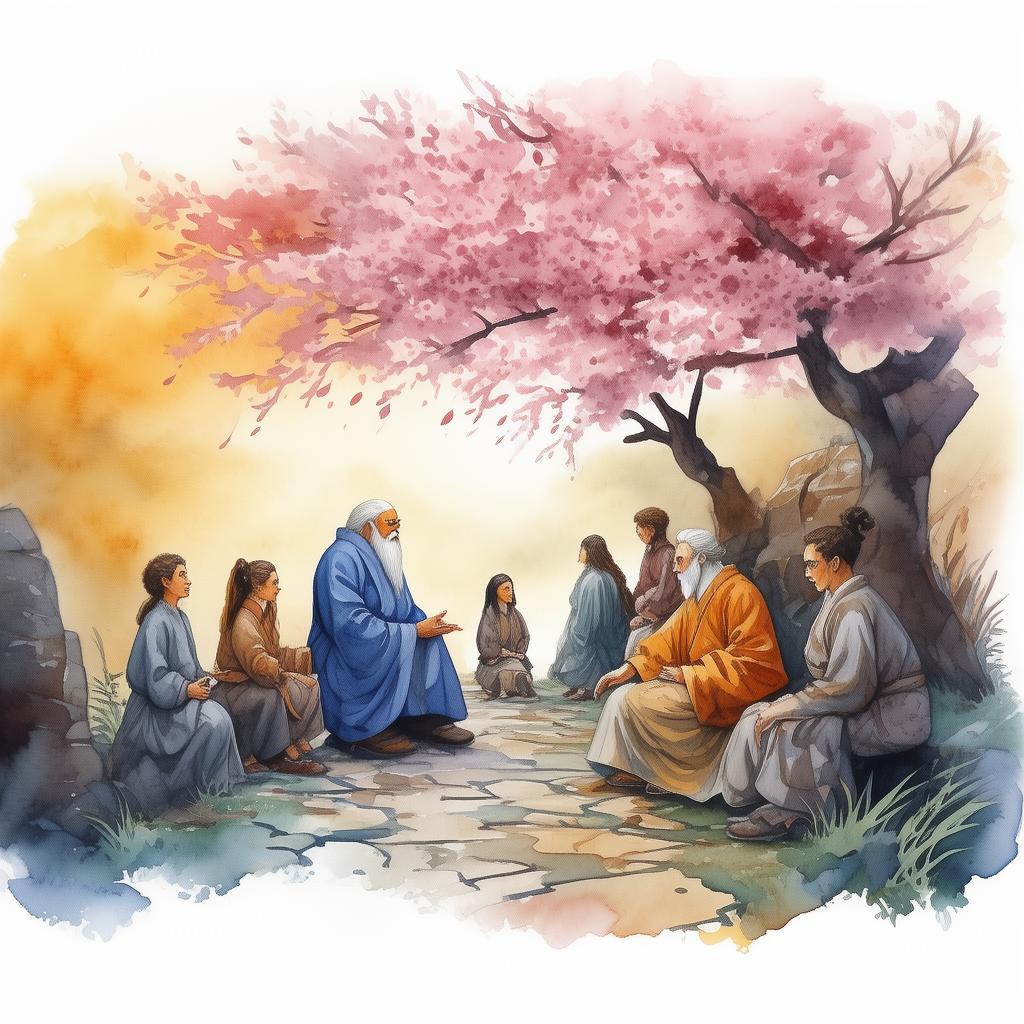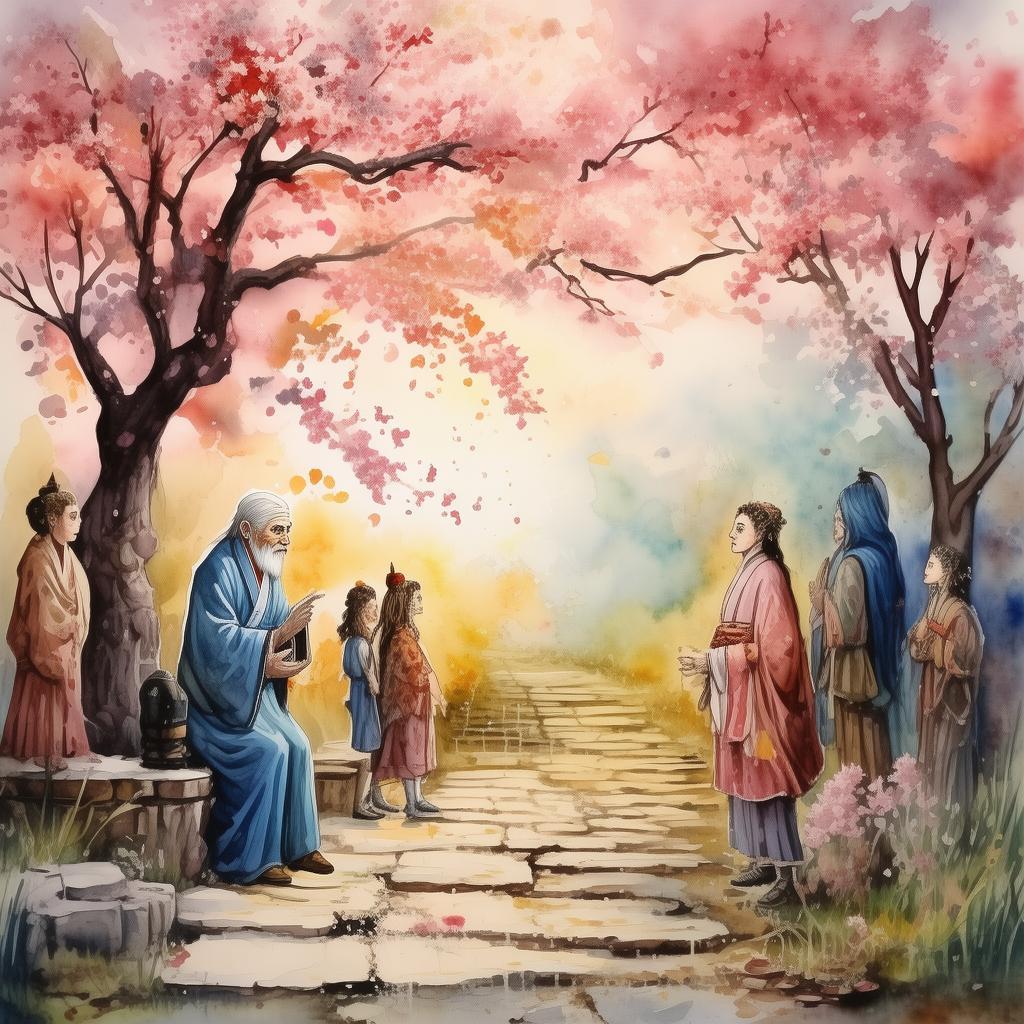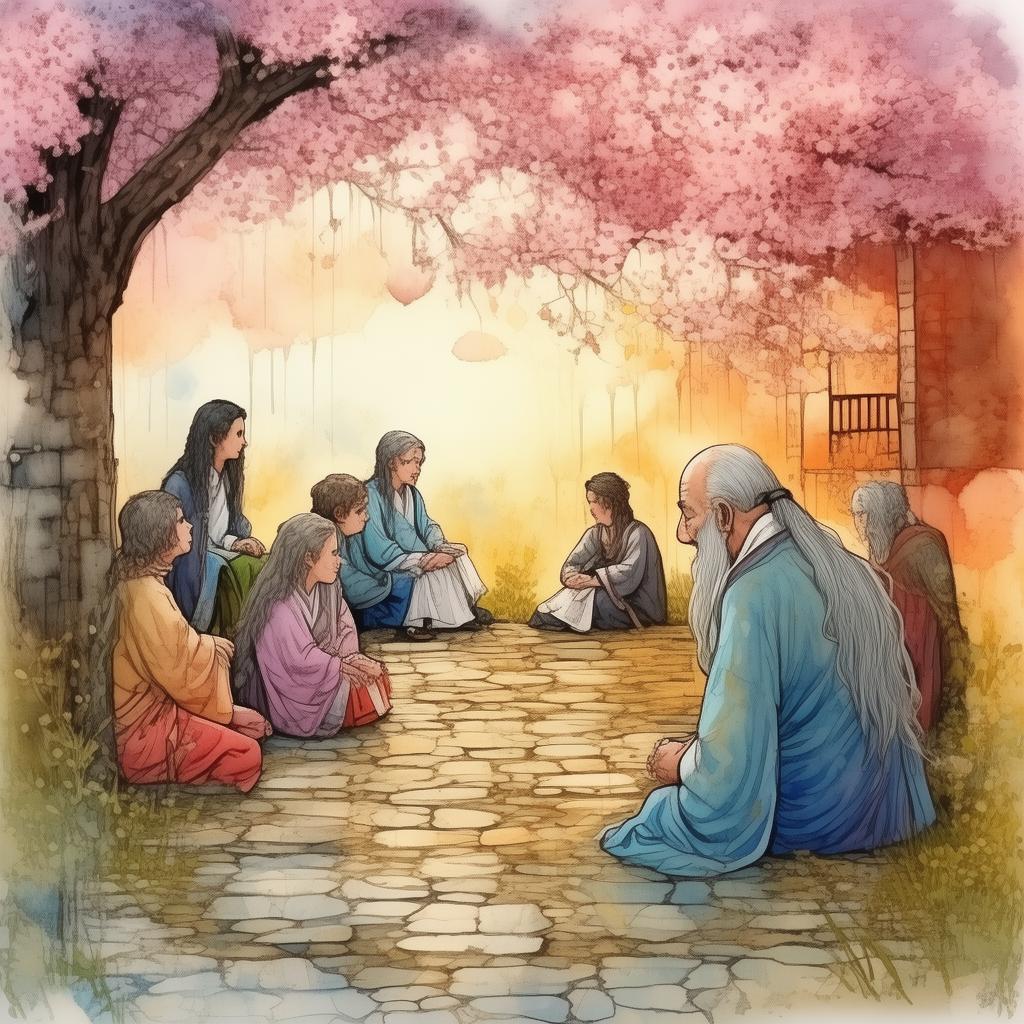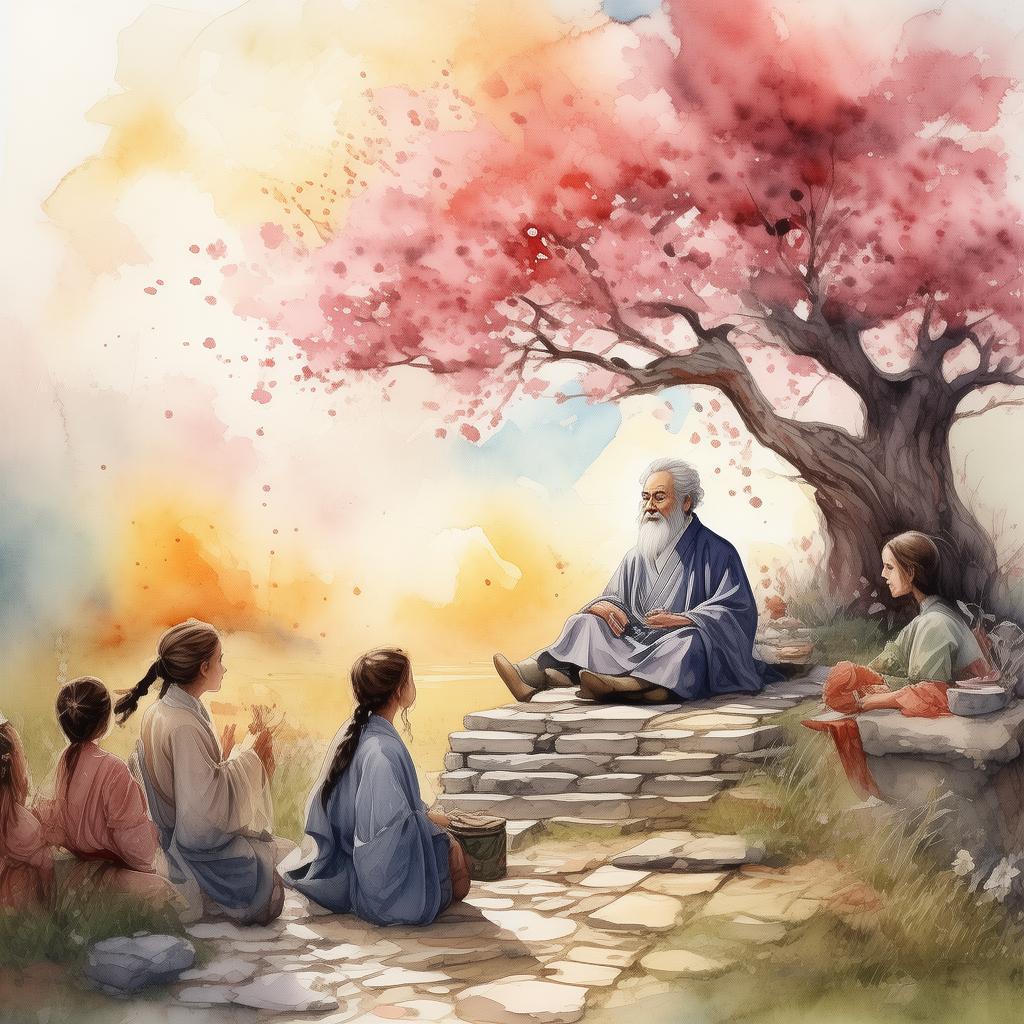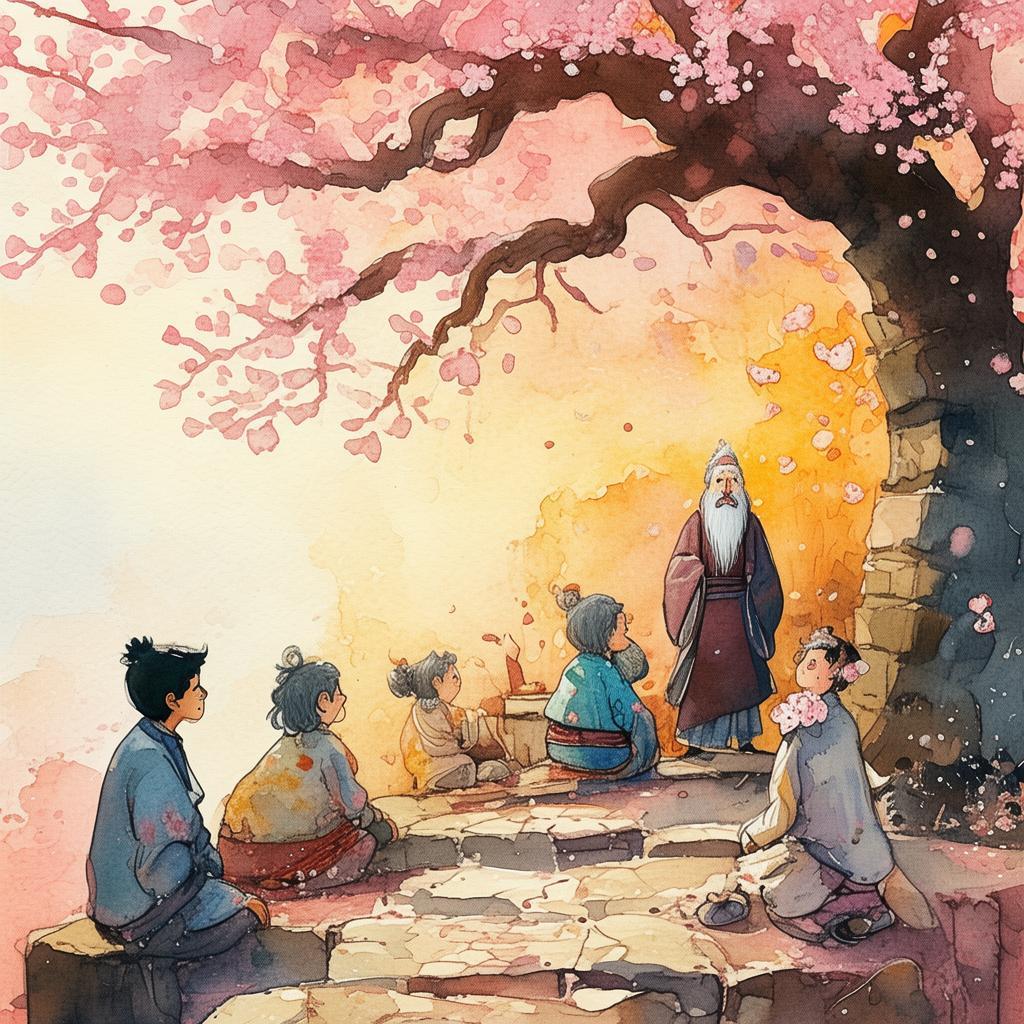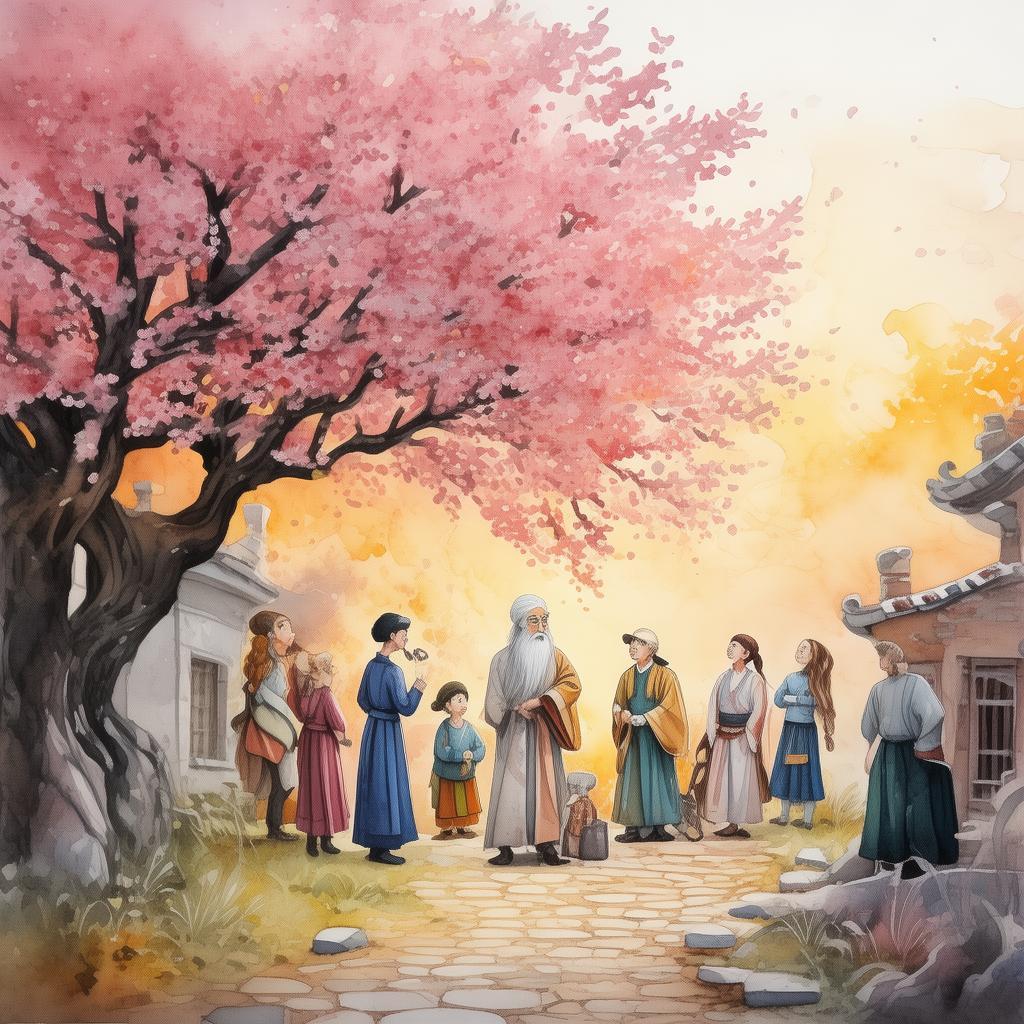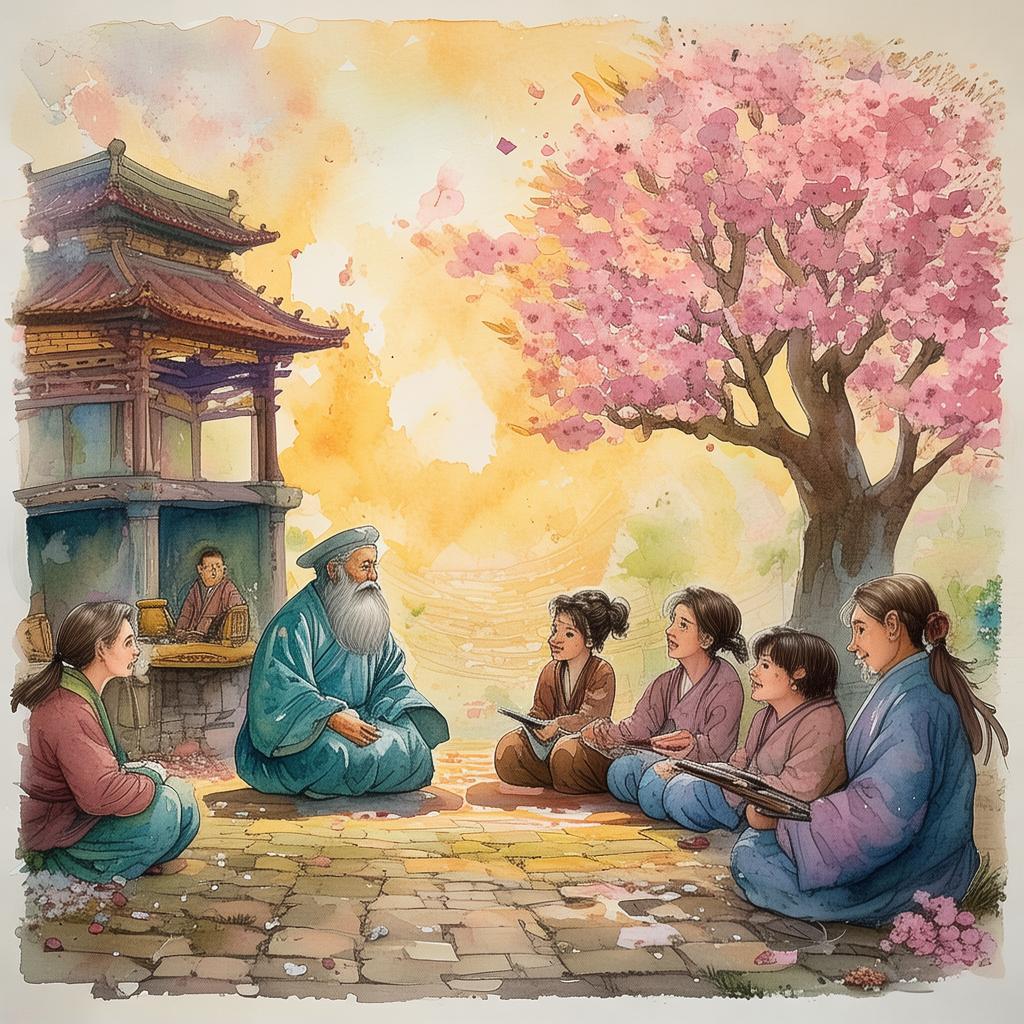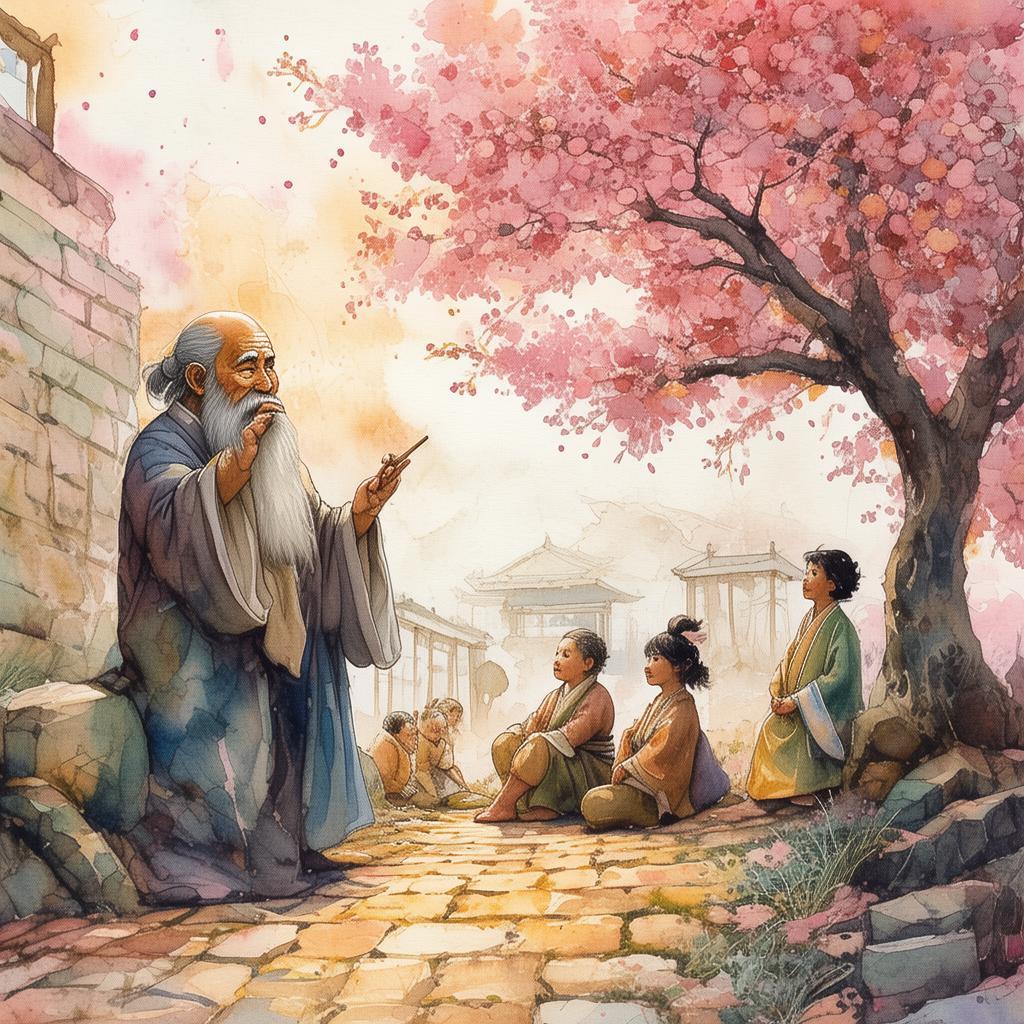The Caligraphy King's Double Dilemma: A Tale of Identity and Illusion
In the bustling capital of Calligraphyia, nestled among the towering ink-washed pagodas, there reigned the Caligraphy King, a man whose every word and gesture was as precious as the ink he used to pen his decrees. The kingdom was a tapestry of whimsy and formality, where every aspect of life was meticulously documented, from the mundane to the mystical, in scrolls and scrolls.
Amidst the throngs of courtiers and scribes, two brothers lived their lives in shadow, their destinies intertwined by a single act of fate. One was named Ming, a skilled scribe whose life was spent in the company of ink and parchment. The other, Ming's twin, Mo, was a free spirit, his spirit unbound by the confines of a quill and the rigid protocols of the court.
The brothers, though identical in appearance, were as different as night and day. Ming was a meticulous observer of protocol, while Mo thrived in the chaos that lay just beyond the reach of the law. However, in a twist of fate that could have been written in the stars themselves, Mo was exiled from Calligraphyia for a crime he did not commit.
Ming, despondent and feeling a kinship with his errant brother, decided to follow Mo's path and venture into the wilds beyond the city's walls. He changed his name to Mo and took up the life of a nomad, hoping to find his brother and clear his name. Little did he know that his journey would lead him straight into the heart of the Caligraphy King's court, where a comedy of errors would ensue.
As Mo mingled with the courtiers and the common folk alike, he discovered that his twin had become a legend among the outcasts—a savior of sorts who had taken up the cause of those oppressed by the strictures of the Caligraphy King's rule. Mo, in his new identity, was hailed as the hero of the people, a symbol of hope and change.
But Mo was not the only one who had mistaken him for his brother. Ming, now a wanderer in the kingdom, had become a scribe to a traveling merchant. By chance, the merchant's caravan arrived in the capital just as the Caligraphy King was preparing for a grand festival to celebrate his rule. The merchant, in a moment of desperation, asked Ming to step in as a stand-in for his missing scribe, believing him to be a mere copy of the man he had known on their journey.
Thus, the stage was set for a comedy of errors of monumental proportions. The Caligraphy King, who had been promised the most exquisite calligraphy by his scribe, found himself face-to-face with Mo, who, under the guise of his brother's name, was now the subject of a court intrigue that had escalated into a full-blown scandal.
The festival, which was supposed to be a showcase of the Caligraphy King's power and the prowess of his scribe, quickly devolved into a farce. The courtiers were abuzz with talk of the twin brothers and the mysterious man who had taken their place. The Caligraphy King, feeling both amused and embarrassed by the turn of events, found himself in the middle of a dilemma that was as much a challenge to his authority as it was a testament to the power of truth and identity.
As the night of the festival drew to a close, Ming and Mo found themselves at odds with one another. Ming, still loyal to the Caligraphy King and the life he had left behind, felt a pang of guilt as he watched his twin brother bask in the glory that should have been his. Mo, on the other hand, felt the weight of his deception and the irony that his actions had led to a greater cause than he could have ever imagined.
The climax of the tale came when the Caligraphy King, tired of the chaos and desperate to restore order to his kingdom, decided to hold a public trial to uncover the truth. Ming and Mo were forced to confront their dual identities and the lives they had built upon lies. As they stood before the King, they realized that their bond was the only thing that had remained steadfast in the face of chaos.
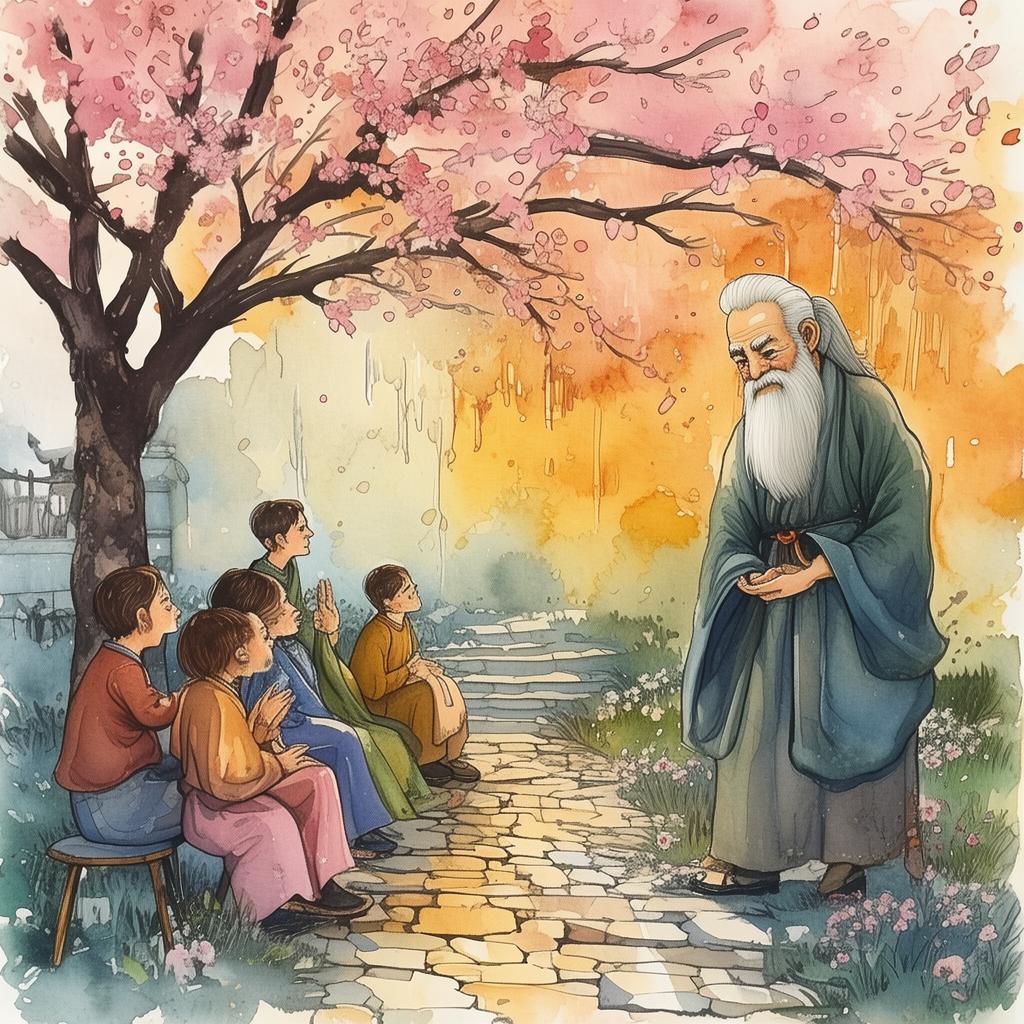
In a surprising twist, the Caligraphy King, impressed by the courage and integrity of the brothers, decided to lift the banishment on Mo and allowed him to return to Calligraphyia. Ming, now seen as a hero in his own right for his part in the events, was given a position of honor in the court. The Caligraphy King, recognizing the folly of his strict adherence to the written word, decreed a new era where the spirit of innovation and change would be cherished alongside tradition.
And so, the kingdom of Calligraphyia emerged from its comedy of errors, not as a kingdom of rules and regulations, but as a beacon of hope, where the written word would always be accompanied by the living spirit of its creators.
In the end, the brothers Ming and Mo learned that true identity was not just in the name they bore or the life they led, but in the choices they made and the lives they touched. Their story became a legend, a tale of how the written word and the human spirit could triumph over even the most absurd of errors.
✨ Original Statement ✨
All articles published on this website (including but not limited to text, images, videos, and other content) are original or authorized for reposting and are protected by relevant laws. Without the explicit written permission of this website, no individual or organization may copy, modify, repost, or use the content for commercial purposes.
If you need to quote or cooperate, please contact this site for authorization. We reserve the right to pursue legal responsibility for any unauthorized use.
Hereby declared.
